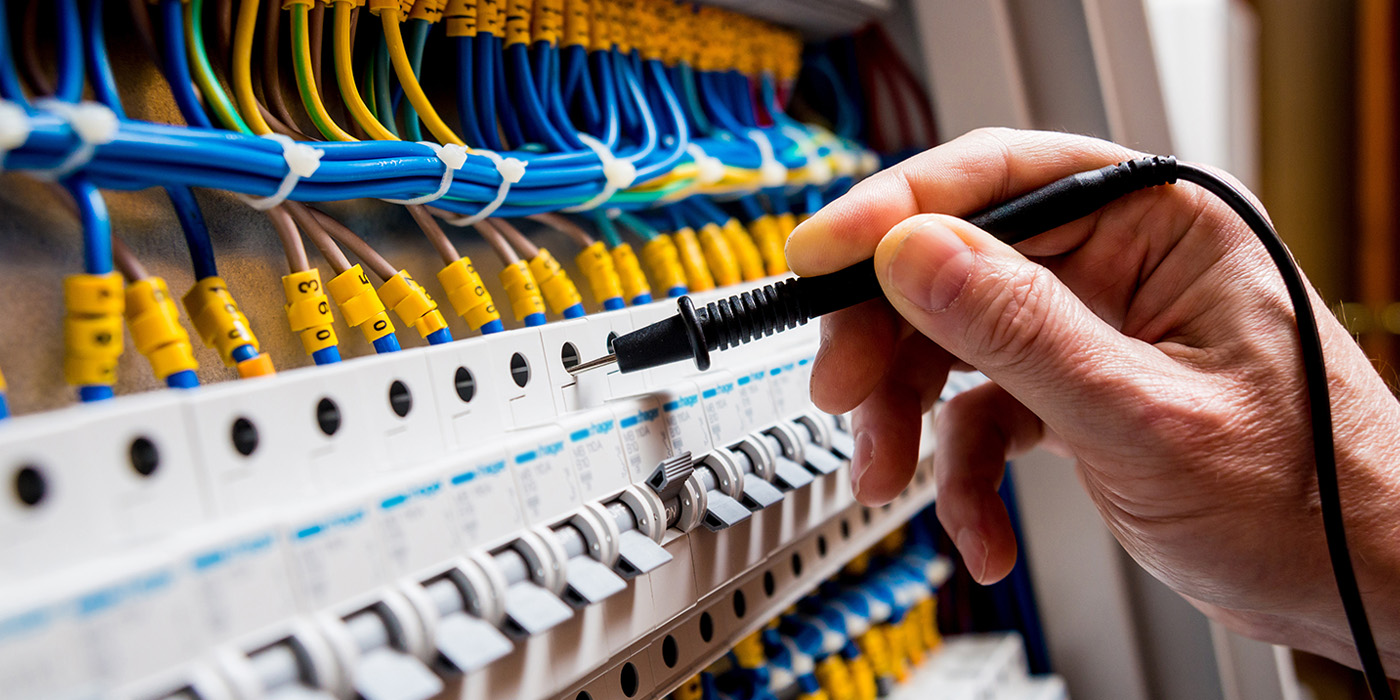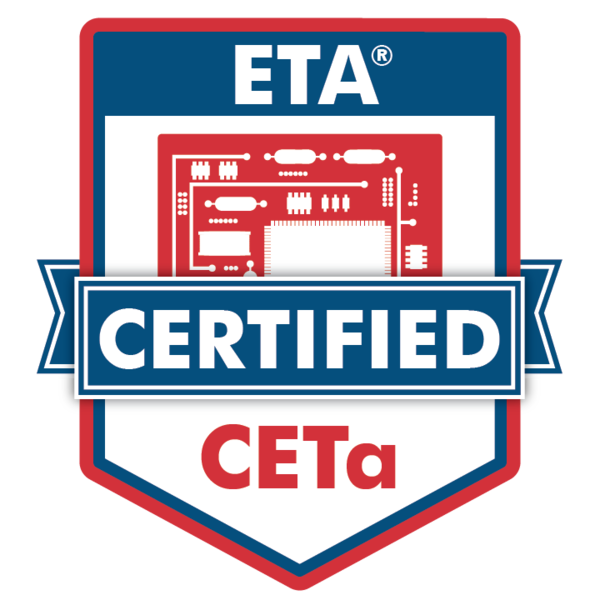

Online Electrical and Electronics Technician Training
Gain the knowledge and skills to jumpstart a rewarding electrical technician career installing, testing, and repairing electronic components and electrical systems!
This electronics and electrical technician course provides an essential understanding of basic circuit theory with content designed for entry-level learners—with no prerequisites required. Learn to read electrical schematics, perform diagnostic assessments, and apply troubleshooting techniques as you prepare for a successful electronics technician career. Immerse yourself in real-life case scenarios, hands-on labs, circuit simulations, and over 200 engaging safe-to-fail activities with immediate feedback to reinforce learning outcomes.
This self-paced course prepares you for the Associate Certified Electronics Technician (CETa) certification, which will be a valuable asset as you launch your new career. This foundation allows you to explore opportunities in specialties like industrial electronics, avionics, telecommunications, wireless technologies, alarm security, SMART technologies, commercial audio, radar and antenna systems, and more.
Prerequisite: There are no prerequisites to take this course. However, this course requires basic computer skills, including the ability to open and manage windows, navigate websites, and perform common online tasks such as downloading files, completing forms, and using web-based tools.
Location | Day(s) | Price | |
|
|
| Register |
According to the U.S. Bureau of Labor Statistics (BLS), electrical and electronics installers and repairers are projected to grow through 2033, with over 10,000 job openings on average, annually. According to Glassdoor, the average U.S. salary for an electrical technician is $64,133. The average annual salary for electronics technicians is $65,536.
The BLS states that electrical and electronic engineering technologists and technicians will have similar job openings over the same period, with median annual wages of $72,800. The top states for employment of these professionals are California, Texas, Florida, New York, and Virginia.
Electrical and Electronics Technician FAQs
Electrical technicians help create, maintain, and repair the electronic components and equipment used in any equipment or device that involves electricity. They also can sometimes work with electricians or electrical engineers or work on site to keep machinery and specialty equipment running correctly.
Some of the duties for an electrical technician include:
An electronics technician is a professional who works with electrical and electronic equipment, such as computers, medical devices, and navigation systems.
Yes. This course prepares you for Associate Certified Electronics Technician (CETa) developed by the Electronics Technicians Association, International, Inc.
Safety: Develop a strong understanding of safety procedures in the electrical industry, emphasizing personal protective equipment (PPE), hazard identification, and safe work practices.
Please click here to see the curriculum outline, price, course details, and frequently asked questions.